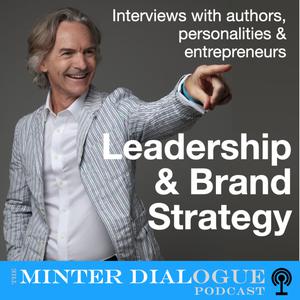
Leadership & Brand Strategy - Minter Dialogue
Minter Dial
On the Minter Dialogue podcast, your host Minter Dial gives weekly interviews around leadership, brand and transformation, featuring top business leaders, personalities, entrepreneurs and authors from around the world who are making things happen! The show was cited as Top 10 Branding podcast for 2020 by Feedspot, Julie Livingstone’s Top 15 Marketing Podcasts 2020 and Top 50 Marketing Blog/Podcasts by Linkedin. Show notes are on minterdial.com. To rate & review: https://ratethispodcast.com/mdial.
- More Episodes? Get the App
Your feedback is valuable to us. Should you encounter any bugs, glitches, lack of functionality or other problems, please email us on [email protected] or join Moon.FM Telegram Group where you can talk directly to the dev team who are happy to answer any queries.